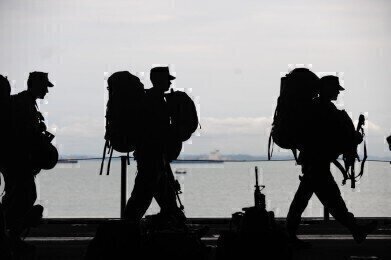Water/Wastewater
How Does War Affect the Environment?
Sep 08 2014
When people criticise the cost of war, the spotlight is generally shone on the impact it has on human lives, political relationships and government bank accounts. What many people don’t realise is the hugely detrimental effect war can have on the natural environment. Despite extensive developments in modern warfare technology, Mother Nature remains largely at risk. So how exactly does war leave its mark on the environment? Below is an outline of some of the biggest hazards:
Water pollution
Despite research indicating that depleted uranium could contain carcinogenic components, many countries still continue to use the chemical element in missiles. The residue of the toxic metal often ends up in water sources which can lead to serious health issues for both humans and surrounding plant and animal life. Across the globe, traces of perchlorate are commonly found in groundwater sources located near weaponries. As a man-made chemical used to create rocket fuel, fireworks, flares and explosives, perchlorate is not a nice element to find near any water source.
In such circumstances, water testing is required to understand if water is polluted. And, while there are numerous ways to do this, there are also a multitude of potential stumbling blocks, such as sample deterioration or contamination during transport, or the necesity for rapid results. As such, mobile testing has emerged as a solution to the inherent limitations in conventional methods. This article, Rapid and Mobile Testing for Monitoring and Ensuring Water Quality, looks at this new technology in detail.
Toxic dust
In landscapes which have been subjected to excessive use by heavy military vehicles, toxic dust is a very real environmental issue. Containing heavy metals such as cobalt, barium, arsenic, lead and aluminium, toxic dust can cause serious respiratory disorders for military personnel and local residents alike. When settling on surrounding plant life, the toxic metals quash growth, contaminate soil and prevent regeneration.
Air pollution and greenhouse gas emissions
According to recent stats, the US Department of Defence emitted a colossal 70 million metric tons of CO2 in 2012. Not to mention guzzling up an estimated 4.6 billion gallons of fuel. Whether used in military training operations or in a real life war zone, military vehicles release a huge amount of carbon monoxide, hydrocarbons, nitrogen oxides, sulphur dioxide and CO2 into the air. At the end of the day, war rapidly accelerates fuel use, which means more demand for oil and a rapid increase in CO2 emissions.
Destruction and degradation of the landscape
From 1990 to 2007, Afghanistan’s total forest coverage decreased by a shocking 38%. While infrastructural development did play a role, deforestation was rapidly accelerated by illegal logging carried out by warlords. As a result, animals have lost their habitats, plant species have become extinct and desertification is emerging as a growing concern.
Damage to natural habitats
Despite the best intentions of war engaged countries, wildlife is always put at serious risk. Due to excessive bombing and deforestation, bird migration through Afghanistan has fallen by a colossal 85%. An influx of foreign Westerners into Eastern countries has also upped the demand for the skins of endangered species such as Snow Leopards.
What’s the solution?
While governments do have policies in place and activists are petitioning for an increase in environmental awareness, the world still has a long way to go when it comes to realising the damage war has on the natural environment and taking steps to prevent further destruction.
Digital Edition
AET 28.2 April/May 2024
May 2024
Business News - Teledyne Marine expands with the acquisition of Valeport - Signal partners with gas analysis experts in Korea Air Monitoring - Continuous Fine Particulate Emission Monitor...
View all digital editions
Events
Jul 30 2024 Jakarta, Indonesia
China Energy Summit & Exhibition
Jul 31 2024 Beijing, China
2024 Beijing International Coal & Mining Exhibition
Aug 07 2024 Beijing, China
IWA World Water Congress & Exhibition
Aug 11 2024 Toronto, Canada
Aug 25 2024 Stockholm, Sweden and online









.jpg)








